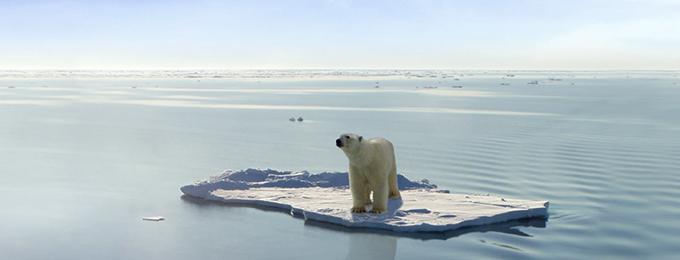
For several years, in France as elsewhere, higher education has been questioned about its role and its responsibilities in the current socio-environmental crises. In response, many research and initiatives have emerged aimed at better integrating the principles and objectives of sustainable development into the various curricula , in particular since the Higher Education Initiative for Sustainable Development ( HESI ) launched on the sidelines of the United Nations Rio+20 Conference.
But despite the increasing consideration of these issues through courses, courses or specific sessions on ethics or sustainable development, awareness-raising activities, such as the Climate Fresco or the Digital Fresco , or even tests of evaluation like the Sulitest , the pressure is increasing on higher education establishments, particularly in engineering and management.
The Student Manifesto for an ecological awakening launched in 2018, or even the very recent calls to branch off or to rebel show that, despite certain efforts, young people believe that the courses continue to perpetuate the dominant model that has led to the current complex crises and coming.
It must be recognized that this integrative approach – adding a course or a session when the programs, already well filled, allow it – remains contradictory and creates confusion by broadcasting paradoxical injunctions between the courses that have remained unchanged and the new activities. pedagogical, without training to manage these contradictions.
It would therefore be appropriate to go further, by committing the courses to a transformative approach . No longer integrating sustainable development into engineering or management , but rather teaching engineering and management for sustainable development. It is by transforming the programs in depth that each student will have the knowledge and skills necessary to be responsible and committed players in the transitions to come, both personally and professionally.
What skills to include?
Faced with this observation, trouble and feverishness seem to grip the world of higher education. How to transform the courses? Do we have to deconstruct everything? What skills to include? In France, recent major initiatives address these issues, such as the working group chaired by Jean Jouzel whose report was submitted to the government in February 2022, or the Shift Project and their ClimatSup Business project .
Although these initiatives provide solid bases for reflection and action, general reflection is still too often focused on the identification of key skills for sustainable development without sufficiently addressing other fundamental questions.
The skills are indeed already known. Academic literature (for example Redman and Wiek (2021) , Moosmayer et al. (2020) or even Lozano and Barreiro-Gen (2021) ) as well as international reports, including those of the European Union , Unesco or of the OECD , have been converging for several years on a clear set of skills.
Through our research and our institutional activities, we were led to produce a global framework of 13 skills integrating these different sources:
These 13 skills represent a path structured in three progressively overlapping blocks:
- understand yourself and others;
- understand the world;
- transform the world.
This framework is not specific to a discipline and aims to support students, teachers, program directors, governance of higher education institutions and public decision-makers in their efforts to transform curricula.
The transition will take time
While identifying these skills over the past few years has not been easy, the hardest part may be yet to come. Their respective definitions are still vague and their operationalization even more so.
What exactly do these skills mean for engineering and management? What degree of autonomy should students achieve for each of them? How to translate them into specific learning objectives? What should be the learning situations to acquire them? What are the situations for evaluating this learning?
Institutional initiatives, such as at Pennsylvania State University , or international ones, such as the PRME i5 project or the EFMD training program , are emerging to address these issues. But these remain complex, and developing the answers and implementing them on a large scale will take time.
Competitive pressure, particularly in France, limits the ability of establishments to fully commit to this development. Above all, this pressure limits collective thinking, whereas it is through collaboration, within and between disciplines, that new models of higher education can be developed and deployed.
In addition to institutional collaborations, these reflections should not remain only an approach of experts and public policies. In particular, it is essential that students, and youth in general, are fully integrated into these transitions. For example, when SKEMA Business School returned to school in 2022, nearly 800 of them in the first year of the Grande École Program were invited to participate in the one-week Hackathon on Higher Education in Transition, with the aim of integrate their work into the transition of the institution.
In addition, in October 2022, the Global Youth Observatory will be launched with a first massive collective intelligence consultation: Youth Talks . Supported by a set of more than 30 international partnerships with higher education institutions and youth groups, the objective of this international initiative is to reach more than 200 million young people between the ages of 15 and 29 around the world in order to collect the aspirations of at least 150,000 of them.
The necessary transition of higher education models requires a real paradigm shift , based not only on new skills, but also on a profound transformation of the narratives, values, metaphors and symbols that explicitly or implicitly structure the models. current.
It is only through these changes that we will finally be able to develop new common horizons and move towards so- called humanist education models in management or engineering that would favor human dignity and collective well-being , rather than wealth, power or status.
Author Bios: Yoann Guntzburger is Professor in management and Marine Hadengue is Professor of Innovation & Entrepreneurship both at SKEMA Business School
